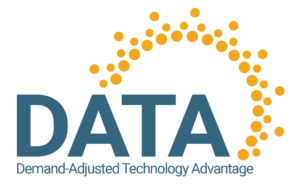Data centers: Fact vs. fiction
June 27, 2025Data centers are quickly becoming a hot topic in economic development, offering unique opportunities for both communities and utilities.
They not only bring reliable revenue to municipal utilities but also attract supporting businesses and infrastructure improvements that benefit the broader community.
As interest in data centers grows, so do misconceptions, making it important to separate fact from fiction.
Jobs
FICTION: Data centers don’t create many local jobs.
FACT: Data centers create high-paying technical jobs and spur local economic development. Construction phases can involve many workers, and operational staff often include technicians, electricians, security personnel and facilities managers.
Reliability
FICTION: Power will become unreliable, and outages will increase.
FACT: Regional transmission organizations (RTO) require reliability studies and grid improvements. Under Heartland Energy’s DATA program, data centers must be capable of participating in demand response programs within their respective RTO. The data center must perform quarterly tests to demonstrate interruptibility and have the ability to reduce power consumption during emergencies, as dictated by the RTO.
Noise Levels
FICTION: Data centers are loud and disruptive.
FACT: Modern data centers are engineered to be quiet and non-intrusive. While cooling systems and generators can create noise, they are typically housed in sound-dampened structures.
Location
FICTION: All data centers are located in big cities.
FACT: Many are built in smaller communities. Locations are chosen based on access to affordable and available power, climate, tax incentives and land availability.
The Cloud
FICTION: Data is stored in “the cloud” — not a physical space.
FACT: The cloud is just someone else’s data center. When you use Google Drive, stream a movie or back up your phone, that data lives in a physical data center – often an inconspicuous building with strict security protocols.
Economic Benefits
FICTION: Data centers are intrusive with no economic benefits.
FACT: Data centers typically have a small land footprint with minimal environmental impact. They contribute significantly to property and sales tax and have the ability to provide property tax relief. They support funding for roads, schools and essential services.
DATA Program

Heartland Energy launched the Demand-Adjusted Technology Advantage, or DATA, to help customers attract data centers while minimizing risk.
DATA promotes the establishment of data centers within Heartland Energy’s service territory, specifically targeting those capable of meeting interruptible rules. This initiative ensures reliable and cost-effective energy, minimizes risks, and meets many market expectations of eligible data centers.
Heartland looks forward to working with customers to promote DATA and clear up any misinformation that may be circulating.
Should you have any questions, contact Heartland’s Director of Economic Development Casey Crabtree at 605-256-6536.
